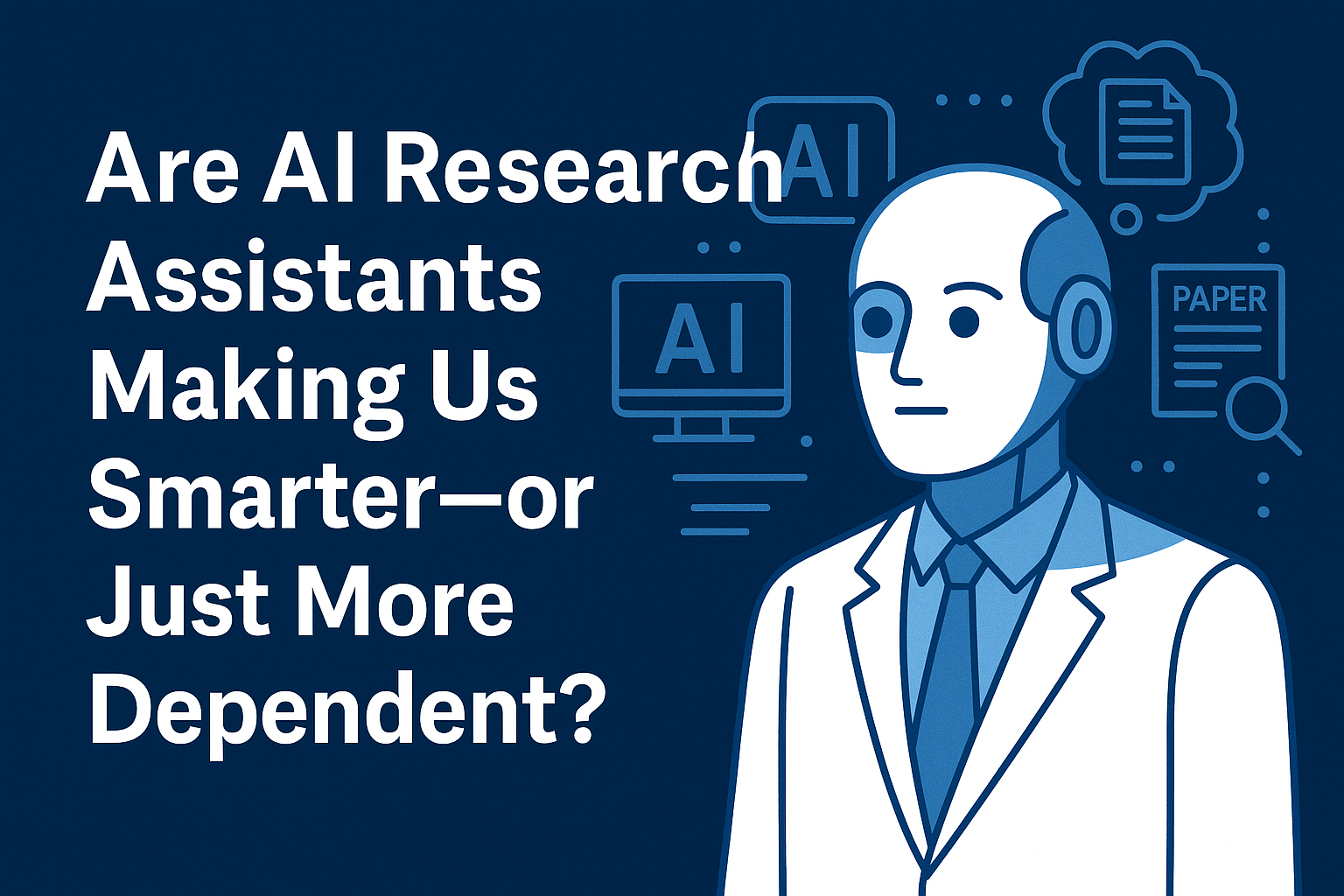
The academic world is undergoing a transformation that is as revolutionary as it is unsettling. With the rise of AI-powered research assistants, the once slow, meticulous process of literature review and paper analysis is being replaced by high-speed tools that can “understand” and summarize research in seconds. But as we celebrate these advancements, a question emerges: Are we outsourcing critical thinking to machines?
The Rise of the Paper-AI Movement
From undergraduates to senior researchers, the demand for tools that simplify scholarly work has given rise to an ecosystem of applications under the banner of paper-ai. These tools—sometimes marketed as “AI paper readers” or “paper reading AI”—promise to scan, dissect, and summarize complex academic texts in seconds. Whether you're looking for a term paper summary or trying to catch up with the latest papers on AI, there’s a tool for that.
Searches for “website for summarizing papers for free” and “summarize research paper ai free” have surged. Researchers want answers, not abstracts. Tools like Paper Digest, Scholarcy, and Explainpaper cater to this craving for compressed comprehension. You upload a PDF, and in moments, the AI highlights key arguments, extracts methodologies, and even explains findings in plain language.
From Companion to Co-Author?
The capabilities of these systems now go well beyond basic summarization. Modern AI for academic research tools can cross-reference citations, suggest gaps in the literature, and even draft early-stage outlines. Some tools, like Research Rabbit and Scite Assistant, are rapidly approaching the role of “thinking partners.” The line between AI for papers and AI writing papers is becoming dangerously thin. To further enhance how researchers share complex ideas, text to video AI tools are gaining traction. These platforms transform dense paper summaries or key insights into engaging, easy-to-understand videos—helping academics present their work visually and reach broader audiences.
Researchers are no longer simply looking for a better search engine. They want a research paper summary template, auto-generated bibliographies, and even AI paper reviewers that critique their drafts. The introduction of paper review AI and AI paper sign tools—apps that “sign off” on whether a paper seems robust, original, or replicable—is just the beginning.
What Does “Understanding” Even Mean?
With a growing dependence on these systems, we have to ask: is summarization the same as understanding?
An AI might summarize research paper content with extraordinary speed, but that doesn’t guarantee the user has grasped the underlying theory, nuance, or implications. This disconnect is creating a class of researchers who appear fluent in the literature but lack depth—an intellectual shell game powered by AI paper search and AI research paper finder bots.
And yet, the tools keep improving. The best free AI tools for researchers are constantly updated with more powerful natural language models, often trained on troves of research paper free databases. The goal? Total accessibility. The risk? Total detachment.
The Ethics of Automation in Academia
Behind the shiny interface of websites that summarize articles lies a series of uncomfortable questions. Are these tools facilitating learning—or enabling avoidance? Should students be allowed to use AI for reading research papers, or are they bypassing the cognitive heavy-lifting that education is supposed to develop?
Even more controversially, what happens when these systems are used to write instead of read? We're not far from AI paper reviewer tools that not only critique but also generate rebuttals. The temptation to let the AI do the hard thinking is already here. And growing.
The Inevitable Shift
Whether we like it or not, AI is now embedded in the academic workflow. Whether you're hunting for a free research paper download, trying to explain paper AI concepts to a colleague, or just need a tool to summarize a research paper on a tight deadline, the digital assistant is now part of the scholarly toolkit.
And this shift isn’t limited to undergrads cutting corners. Researchers at the top of their fields are experimenting with AI for research paper free tools to speed up publishing pipelines, improve their literature reviews, and draft clearer arguments.
Final Thoughts: Dependency or Evolution?
AI has created unprecedented access to academic knowledge—but at a cost. When the intellectual friction of grappling with a text disappears, something valuable may be lost.
Maybe we’re not replacing thinking. Maybe we’re evolving how it happens. Or maybe, just maybe, we’re building a research culture that prioritizes output over understanding.
Either way, the question is no longer if you’ll use AI in your research—but how much you’ll let it do for you.